Former American Airlines CEO Doug Parker and his wife Gwen have launched a nonprofit dedicated to addressing the pilot shortage by attracting women and people of color to the profession. Parker told NBC/DFW that Breaking Down Barriers will target young people in underserved communities and “create a pipeline of pilots ready to hire.” He said many young people don’t even consider an aviation career because there are so few role models. “They don’t see people that look like themselves that have these jobs in their communities but in a few years they will,” Parker told the station.
He said that lack of awareness plus the cost of training are the major barriers to tackle and the group is looking for mentors, volunteers and financial contributions to start tackling them. The group will actively seek out prospective candidates for scholarships that will be used to fund training. Volunteers and mentors will also head out to schools and community groups to spread the word that aviation careers are open to everyone. “It’s a wonderful profession. It’s a noble profession,” Parker said. “The only problem we see is that there are some people who think that it’s not even available to them. It’s simply not true. It’s available to all. It should be available to all.”













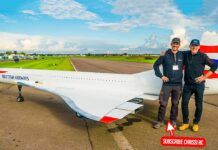
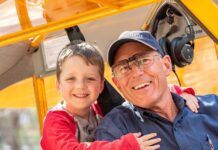













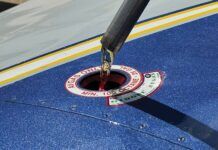




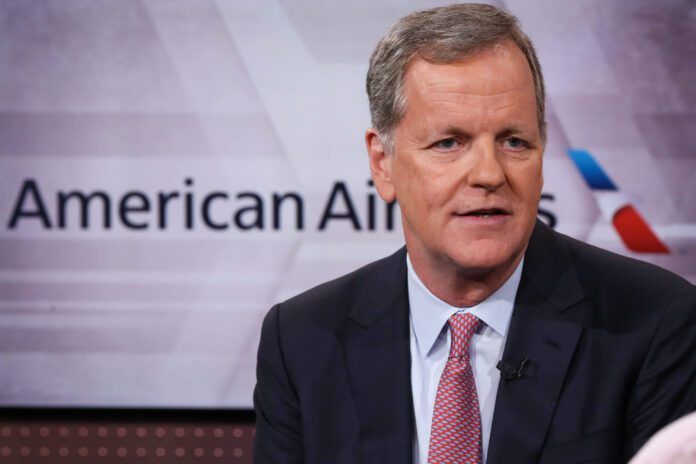
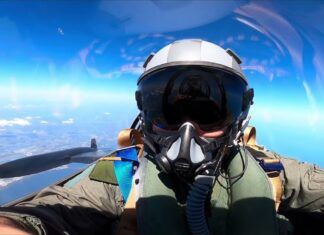
Attracting women and the colored people?
Why not attract EVERYONE who has the skill and desire?
Because we are supposed to hate all white males, apparently.
Projects like this don’t impress me as effective.
Read the article, no hint of lowering standards
Any time you limit the pool of candidates to a certain group, you inevitably lower the standards.
It’s just a politically correct way of being discriminatory while hiding behind DEI.
But it’s still discrimination. And it still lowers standards.
Agreed. Good intentions often have unintended consequences.
These folks have skill and desire. They don’t the cash or anyone in the neighborhood to look to for guidance.
Arthur, I’m sure you have what it takes to help out. Give it a shot!
He has a low expectations of women and what he called “color” people. That’s damnable rather than laudable.
The thought is that if there were not any biases and all people actually had a fair shot, then we would have equal number of women and men pilots, and the racial ration would equal the ration in society. THAT is why women and minorities get these bumps. The bumps are already in place for white males. And I’m a white male.
Should be racial ratio.
Excellent idea Doug!
Drawing on my ten years with a youth aviation education non-profit, I understand the concerns surrounding programs focused on specific groups. It’s important to remember that these initiatives aren’t about taking opportunities away, but rather creating access for those who’ve historically been excluded. While the debate can be complex and even paralyzing, it’s important to acknowledge the good intentions behind programs like the Parkers’. However, the potential for controversy shouldn’t overshadow the positive impact they can have. Ultimately, I support the Parkers’ non-profit.
Agree Raf ~ amazing how something like this is a dog whistle that riles up people who can’t see the benefits . Traditionally people of color lack access to good healthcare because healthcare is typically tied to your job. What’s wrong with opening these jobs and benefits to QUALIFIED candidates without taking anything away from anyone else
I agree with you Raf. However I would open the opportunity to all underprivileged. Poverty and low income is everywhere. Single parent families out number 2 parent families. All of these kids deserve chance at a dream. I am currently teaching Private Pilot ground school, for free, to high school students. I live in a poor area where 99% of the kids families can’t afford flight training. I will be looking for foundation money to do the flight training for those that pass the written. Gender and color doesn’t matter. Equal access to all students matters to me.
Spot on!
Agree.
It’s important to realize that NO ONE is stopping anyone from investing years of their life and borrowing a half million dollars to be at the whim and behest of the few airline companies. It’s a false premise to suggest otherwise.
OK, sounds like a wonderful idea. Including the requirement of holding at least a 3.0 in High School level math and science, implementing 1st-class medical certifications applicable to pilots throughout the initiative. Be able to read, speak, write, and understand the English language. Be of good moral character. Happy now, boys and girls??
Well, maybe not the 3.0 in HS math & science. Some folks (yes, personal experience) bloom later. I would hope that inductees are required to pass physical (FAA 1st Class), language, & basic knowledge/aptitude tests at a minimum. Aviation is a wonderful industry in which to work!
Not if it discriminates against a certain group. No.
Just added AA to my personal no-fly list, after UA. I want a passionate pilot up front who got there through hard work on his own, not because of his skin color or sex. Please stop with the woke lingo. In America, there are no “underserved” communities, but there are a lot of dysfunctional families and horrible government schools.
Wow. Could you possibly have your head any deeper in the sand? “No underserved communities” in the US? Are you KIDDING ME?
Isn’t this a private (Parker) + community charity, not a corporate (AA) charity?
I’m with you Kent. It starts with the family. When it comes to raising kids, one of the biggest problems in America is having no father at home. Next comes our woke schools. The cure is to go back to what made America great.
From the Declaration of Independence: ” We hold these truths to be self-evident, that all men (meaning mamnkind) are created equal, that they are endowed by their Creator with certain unalienable rights”
The reason all should be treated equal is because that is how God sees us and so that is how we should treat each other. With human dignity knowing that God loves the other person just as much as He loves each of us.
Kent, please re-read the first sentence. “Former American Airlines CEO,”
But, as an AA pilot, I think I would prefer you would fly Delta, SWA, or even walk.
Russ, thanks for the stock photo of Mr. Parker in front of the AA banner and not in front of a Breaking Down Barriers sign.
I couldn’t find a photo like that. All the photos I found had an American logo in them.
I suggest you ride Amtrak and Greyhound for a few months.
Just added “Kent” to my list of grumpy old men who no longer serve a useful purpose in life.
If there is really the pilot shortage as advertised, it makes sense to try attracting as many potential pilots as possible. One way to do that is to reach out to groups who may not typically be represented. The requirements to achieve an ATP position need to remain as they are – no watering down, nor dumbing down. It will require motivating and encouragement from those offering the opportunity because the kids they are aiming at have little or no frame of reference about following the path to employment with an airline. I worked with Native American kids promoting aviation and nearly every one of them had the feeling that involvement in any aspect of aviation was something other people did, and the people they knew who had become involved with aviation had been through service in the military. The initial hurdle will be to instill some faith that it’s not only possible but likely for someone to build a career in aviation though it may not look that way when starting out.
“IF” there is a pilot shortage in the commercial jet transportation section, why are they looking at segments of the population who have been least likely to be interested? Perhaps the problem is how they treat their pilots rather than some phantom menace of not enough role models?
Because it’s not segments that will respond, it is individuals.
The “Idiots” in charge will never understand that as long as distinction and preferences are drawn for racial differences, discrimination will prevail. I’m all for a “color blind” society and then we may be able to move on to more important issues.
Yes sir. I have listened to black leaders who would say the same thing. Creating programs or rules for a minority only promotes differences. I’m with you Jake.
Inclusivity, The Times They Are a-Changin’
Pilot Demographics: 1960s vs. 2020 – A Summary
1960s:
• Overwhelmingly white and male: Women and minorities were largely excluded.
• Expensive career path: Limited access for lower socioeconomic backgrounds.
2020s:
• More diverse: Increased representation of women, minorities
• Challenges remain: Achieving full inclusivity requires addressing underrepresentation of certain groups and socioeconomic disparities.
Positive changes:
• Increased awareness and initiatives promoting diversity.
• Technological advancements potentially lowering barriers to entry.
• Shifting societal norms encouraging more women and diverse individuals to consider piloting.
Continuing challenges:
• Dismantling systemic barriers and ensuring equitable access.
• Achieving proportionate representation for all groups.
• Addressing the ageing workforce and potential pilot shortage.
Overall: Progress towards a more inclusive aviation industry, but ongoing efforts needed to fully realize a diverse and vibrant pilot community.
Wow, that’s a strange take. I guess if you forget the demographics in the 60’s and that a large portion of women were more distracted by raising “boomers” than fulfilling airline needs.
Two of your points caught my eye:
> Dismantling systemic barriers and ensuring equitable access.
Please describe the systemic barriers to access – keeping in mind a lack of money for flight training applies to MOST EVERYONE and “systemic” means the government or society is blocking minorities from entering avaiation.
> Achieving proportionate representation for all groups.
So, will you force people to enter careers that don’t interest them to get that supposedly desirable balance AND will it apply to the NBA, NFL etc?
BOTTOM LINE: It’s fine to offer privately funded scholarships to those who meet the criteria relevant to being a safe pilot but stop claiming there is some sort of covert operation to block women and minorities from becoming pilots. We are decades past that crap.
“Achieving proportionate representation”
That actually creates institutional discrimination.
Exactly correct!
Here again its all about the pilot shortage………………and not one word about the even bigger issue facing aviation is the LACK of A&P mechanics. In the next 10 years there will be a vacuum from all of us A&P/IA/PPL shop owners retiring. Hire all the pilots you can, and they will be sitting at the gate waiting on maintenance for repairs and no one to service them. I have not seen one article here on this topic. Last IA seminar last year, 80 attendees, 60 of us over the age of 50 coupled with 20% leaving each year in retirement with less than 5% new coming in, in 10 years you will have lost all the experienced people and all that “Tribal Knowledge” will be passed down to no one.
Airlines not having enough people wanting to be commercial airline pilots?
Gee, maybe the problem is how airlines treat their pilots?
That’s why this surprises me, Mr Parker along with another airline executive Mr Kirby don’t exactly have the best relationship with the airline pilot’s unions. I wonder just what Mr Parker motives really are? Is he expecting these new pilots to work for minimum wages? Very good point on the Mechanic situation. Without maintenance professionals to fix the airplanes, which are not exactly the most reliable transportation, nothing moves!
Good topic for AVweb! Let’s shift our focus to the unsung heroes of the skies: airplane mechanics.
As a long time A&P / airplane owner / recreational pilot (with the fever), I’ve been bringing up the mechanic shortage and attendant looming retirement problem up at the annual Airventure membership meetings for years. I see the winter meeting they have with FAA as THE single most important venue for enlightening and maybe waking up the numbskulls on Independence Ave in DC. Airlines can afford to use pay and benefits to lure a dwindling number of mechanics but GA cannot. The current topic of MOSAIC was high on the agenda this year so I got up — again — and warned Jack Pelton, et al, that the parallel issue of mechanics is looming large on the horizon as ‘granbury’ aptly points out. “Who is gonna maintain those GA airplanes?” And those GA airplanes are the embryonic stage for airline pilots.
There are a few mechanic initiatives in place right now but they’re too few and don’t go far enough. All they are IMHO is lipservice. It’d be far easier to lure young people from poor socio-economic situations into becoming mechanics and other support personnel than pilots, I’d think. And — once into aviation — those with a propensity to becoming a pilot might have the economic wherewithal to pursue the far more costly flying avenue. A leaf starts out as a bud, not a leaf.
I see Doug’s effort as laudible but laughable at the very same time. I’m sick and tired of hearing about poor black kids and underserved women and all the rest. Give us all a break, will ya! If these people REALLY want to do something, they need to get offa their butts and make it happen. I grew up SO poor my Mother didn’t have two nickles to rub together at times in the 50’s. I made it because I wound up in the USAF, discovered how to think positively and make things happen and so … they magically did and I prospered. Doug, et al, would be better served helping people understand that part of life then trying to make pilots out of people who have a lot of other problems needing solved first. IMHO, the worst thing that ever happened to society was ending the draft. Finding oneself in the military would go a long way to gobsmack people who need a swift kick from life FIRST.
My summertime aviation location — literally — in the shadow of Oshkosh has an 80-year-old IA that I work with. I’m not far behind by age and don’t want to start a business in MY retirement SO … I have it in my equation that when he goes away for whatever reason, I’m done. I guess I could buy an E-AB or LSA and do my own maintenance but I ain’t gonna. My 172 has been with me for nearly 40 years and so … when he’s done, I’m done.
Doug is missing the boat in more ways than one. Hans — below — is onto it, too! I’ve tried to help a few young people but all they seem to want is instant gratification with little effort on their part. THAT is a societal problem … not an aviation problem. I’ve given up Young Eagle rides for the same reason … I’m tired of giving kids “E” ticket rides with almost no positive impact. I think the whole thing is gonna implode soon enough. The FAA is TOO focused on perfection, has too much bureaucratic power is far better at throwing rocks in the path of those who MIGHT be motivated to aviation IF it were a bit easier to start out. And — OH! — did I mention rewriting all the FAA regulations with the operative gender-neutral pronouns while they try to figure out how to save the planet with lead free fuel. Geesh!
(Sound of Larry stepping off his soap box.) cpndav, you can add ME to your list, too! I don’t care.
No, actually, just like in the cockpit, they’ll just lower the standards until they fill the jobs.
It’s all about supply and demand. Not about quality.
And if they do it this way, they can pick up a few more DEI points along the way.
Parker and AA are once again a little late to the party. If it’s difficult to find all races of qualified pilots, where is he going to steal pilot of color, gender, proper pronouns, ( or whatever todays woke groups are) from United who started Aviate and have been beating the bushes for a while. Is this attempt just to increase his clicks in the public eye or did this come from backsliding from AA ( not the airlines)
I have three sport planes, two of which are primarily used for aerobatic flights next to and over our airport. Less than two miles away is a local high school with a large population of kids. Our airport has very easy access and the few gates and entryways would not be enough to deter anyone from visiting. My neighbor has two homebuilts also and his hangar door most often is open and welcoming as is my hangar. For the past ten years neither one of us has ever had a kid show up, even on weekends to inquire about the Pitts and Laser flying overhead and doing tricks as civilians call it. In fact, the jump zone which is only three hundred yards from us and faces our hangars, normally populated by 20-30 somethings, rarely do any of their skydivers show interest in what is in our hangars or my aerobatics between their drops.
At a very early age I had a burning desire to be a professional pilot and overcame many obstacles on the way to my goal. What I want to see in the future, are flight decks occupied by equally curious people that are willing to explore this wonderful realm of flight and willing to go the extra mile to get there.
And I agree with another earlier poster, if we don’t find aviation mechanics to fill upcoming vacancies, the most capable pilots will sit there twiddling their thumbs at the gate waiting to get clearance for pushback.
If the high school kids have a feeling they might be unwelcome, you may have to reach out to them. If 10% of them then further indulge their curiosity, that’s about typical. At my airport most of the glider people don’t seem to have much interest in what’s going on with the powered airplane people, and vice versa. For that matter the factory-built crowd doesn’t have much interest in homebuilts and homebuilders, unless they own one or more of each, and also vice versa. Maybe many people are just plain busy with what they’ve got going on.
You can partially blame TSA for this. How many airline served airports still have an area where you can observe planes takeoff and landing? Youngsters are not going to be inspired to be airline pilots if they can’t see planes in action. Yes smaller airports still do but Hans M makes a valid point. I too have seen very little interest from prospective skydivers in checking out planes or watching other planes takeoff or land.
Several years ago, I went to the local Technical college satellite operation and volunteered to speak, mentor or otherwise help any students who wanted to pursue aviation … no takers. I volunteered to speak at the local high school OR to work with counselors … no takers. Finally, one kid spoke up so I tried to take him under my wing. He showed up at a local EAA chapter meeting once and never came back. The EAA chapter has scholarship money available for locals interested in aviation … no takers. There’s your problem … lack of initiative despite opportunity starring them right in the face.
Do we want a culture based on favoritism for people of particular demographics or not? I vote not.
Becoming a professional pilot is hard. It takes a lot of inner drive and passion. Money is secondary.
When you make the path easier compensate for a lack of inner drive and passion you end up with pilots who lack respect for the gravity of the job, have an entitled attitude, or simply lack competency.
I’ve been an airline pilot for well over 20 years and this is a significant and growing problem.
I said the same above. You’re spot onto the ‘problem.’
The “Breaking Down Barriers” initiative, led by Doug and Gwen Parker, is focused on enhancing the presence of women and people of color in aviation by assisting them through scholarships, with the aim of correcting past imbalances. Their objective is not to discriminate against any specific group, including white males, but rather to open doors for historically underrepresented individuals. The initiative recognizes the distinct challenges that certain groups face and aims to ensure fairness for all. I believe they are addressing historical imbalances, not practicing discrimination. Ultimately, this project is the result of the Parkers’ goodwill; it’s their money!
“Do we want a culture based on favoritism for people of particular demographics or not? I vote not.”
What does your misreading of the intent of ‘Breaking Down Barriers’ have to do with their efforts to attract women and people of color to the profession? Why bring up favoritism when nothing of the sort was said, intended or remotely implied?
The gist of their perspective is stated in the last sentences:
“It’s a wonderful profession. It’s a noble profession,” Parker said. “The only problem we see is that there are some people who think that it’s not even available to them. It’s simply not true. It’s available to all. It should be available to all.”
But hey, thanks for being so concerned for ‘our’ culture, but I’m afraid you and too many other others above reached for the free cheddar in the mousetrap on this subject and have revealed a bit more about yourself than probably intended.
Good intentions often have unintended consequences – which is the concern of many here. Of course, any opinion other than yours must be invalid – right? Seems you have revealed a bit more about yourself than probably intended.
‘Good intentions often have unintended consequences – which is the concern of many here.’
BS. It’s pure bias and discrimination and an unfounded fear of trusting the established and yet necessarily changing disciplines and qualifications of becoming a pilot that everyone who is able will have go through for the same results.
It shows bigotry and racism couched in verbiage of protecting the status quo and nothing more and actually shows the ‘unintended consequences’ of arrogance.
And indeed, I hope I have revealed more about myself than intended. 😉
Nope, you are simply naive if you don’t understand that the potential reduction of standards to accomodate “equity” is often very harmful – even to those it is intended to help. Inner city schools reducing their curriculim and graduation requirements in order to make it easier for kids to be passed through the system (but end up totally unprepared for the real world) is a perfect example. In the case of ANY position that requires special skill to keep people from dying (doctor, pilot, soldier, etc) it’s vital that training standards not be down-graded to meet some equity goal.
Before I sign off this thread I thought I would spread some holiday cheer and share some more material for you to consider to expand the reach of the dangers you cite from the goodwill, scholarships, mentors, volunteers and financial contributions that groups like ‘Breaking Down Barriers’ are working toward manifesting.
*The largest proportion of underserved communities in our fair land are away from the cities – where rural, young people of all colors and genders from small towns, farms and small cities across the country also might not know of all the opportunities aviation has to offer, or even have access, transportation, money or opportunity to pursue a pilot’s certificate. (The challenge is in geography and logistics of course to implement a workable outreach).
Yet consistently, they score significantly lower in IQ, visual working memory, information integration, communication skills and SAT scores than inner city minorities do. Of course, not being naive, you knew that already. Just surprised that wasn’t mentioned in your comment.
Knowing this, the lurking danger of the dilution of pilot standards and qualifications has even greater potential to wreak havoc with our culture and societal health, right? Scary stuff.
I don’t envy the position the FAA is in one bit, no sir.
Happy Holidays!
What you’ve revealed is a lack of realism, or a lack of experience with these programs and what they’ve done in the past.
Just more virtue signaling at the cost of career opportunities for some who don’t meet the filters for this program, and safety for the industry as a whole.
Thomas Dartmouth Rice is alive.
Grateful. I was drafted at 22 with a basic college education and 4-year work experience as an electro-mechanical draftsman, I unexpectedly entered military service, including a tour in Vietnam as an infantryman. It wasn’t exactly what I had in mind, deviating from my education plans. However, my military service became a source of pride. At least when my grandchildren ask, “What did you do during the Vietnam war, grandpa?” I don’t have to say, “Well, I shoveled shit in Louisiana.” (Inspired by Gen. Patton)
Upon reflection, I find irony veering from my then self-dependence while growing up, transforming me into a believer in the power of scholarships. The G.I. Bill came in, providing accessible scholarship benefits to many, regardless of color, including me. Consequently, I spent over half a century in aviation, with 25+ years as a full-time flight instructor. Out of gratitude, I cooperated in the forming of a youth aviation education program offering free training in the Coachella Valley to encourage young men and women—daughters and sons of farm workers and professionals—to embark on new careers in aviation. A lot of work, a lot of money spent, a lot of criticism, a great deal of satisfaction received.
What a rich and wonderful life you have described, Raf. I’m certain your efforts reached those who were ready, whether one or many or black or white or First Nation – is so not the point. You provided the connection to aviation for these beautiful souls that might have never been able to make before.
That’s Doug Parker and his wife’s hope too, I’m sure. Gratitude for the opportunity to give back however they see fit, whether one or many, and let be what will be.
👍🙏
According to a September 19, 2023 article in the Chicago Sun-Times, “Just 3.4% of U.S. airline pilots are Black, 2.2% are of Asian descent, and a paltry 0.5% are Hispanic or Latino. Women make up just 4.6%.”
chicago.suntimes.com/2023/9/19/23879313/airline-pilots-white-men-diversity-race-gender-training-eileen-bjorkman
Blacks are ~12% of the population, Asians are ~18% of the population, Hispanics are about the same as Asians but measuring ALL the ethnic varieties makes it higher. Females (is it OK to say that?) are slightly more than half of the population.
Lets examine the female US airline pilot population first … it’s <5% compared to 6% internationally. How could more than half of the US population only comprise <5% of US airline pilots? That's a <10% participation rate. Blacks are 12% of the population yet are only 3.4% of airline pilots for a participation rate of ~25%. 2.2% of airline pilots are Asian for a participation rate of ~12%. Hispanic or Latino airline pilots are ~0.5% yet are likely well over 20% of the population for a participation rate of <3%.
OK … so what people want me to believe is that the participation rate of these groups are so low because they don't know about aviation as a life path. That their participation rate is so low because they don't have Fathers? That they grew up in a less than desirable neighborhood so they didn't know they could become a pilot. Give me a break. We all know that's bravo sierra!
Becoming a pilot takes a lot more than knowledge of the occupation as a life path. It takes dedication. It takes money … LOTS of it. And there's a modicum of luck involved in it, too. Even with United's Aviate program and now others, the minority participation rate still basically sucks. Even for those of us who started many years ago when costs were a lot less, it was still tough … yet we endured and won the prize. SO what's the difference … the society has decayed to the point where everyone wants instant gratification and is unwilling to expend the energy and patience to achieve something hard to do in life.
This isn't a pilot profession education problem, it's a SOCIETAL problem, as I see it. The good Mr. Doug can spend his money any way he desires … it's HIS business. But were I in HIS shoes, I wouldn't be trying to broaden access to aviation … I'd be addressing societal problems that far outrun just wanting to become involved in aviation. We're teaching kids about being woke, about DEI and all the other buzzwords du jour. What about working with your hands? What about balancing a checkbook and saving for a rainy day. What about learning that life is hard and there are no rewards for those unwilling to work hard? And on and on.
So now they want to 'grease the skids' for these subsets of the population and expect there won't be some ultimate detrimental outcome. That's a fairy tale.
Larry S, I agree with your assessment especially since the participation rate you describe goes across the board for other activities I’ve been involved in. While hiking or climbing I was always pleasantly surprised to see a lady involved in that sport. While engaged in SCUBA I see nearly the the same distribution with less women and far more men. When I visit with my skydiver friends just a few hundred yards from my hangar, once again the ratio of men far outnumber the women. On the rare occasion I come upon one of the other groups, I give them a big welcome and hopefully give them the impression of inclusivity.
The airline I worked for, while on a hiring spree in the late 70’s, made sure to comply with government mandates to fill as many positions as possible with gals despite the fellows having far more flight experience. As an Army trained Vietnam pilot and having served a tour there, flying the Cobra gunship, then subsequent time in acquiring ratings and flying a host of civilian aircraft including corporate jets, I was at the end of the line as far as the airline PR and hiring office was concerned. I verified this later on the line when talking to female pilots about their experience and depth of aeronautical knowledge when they were hired. The discrimination sign was easy to read up there on the wall, as it was when I reached the FAA mandatory age 60 rule.
Larry, I love you man, but, while I acknowledge your statistics as factual, I differ in how they relate to underrepresentation and social inequalities. My concern lies in avoiding harmful generalizations or stereotypes about entire groups.
Your statement seems to dismiss important factors like financial limitations, historical discrimination, and lack of resources as mere excuses. Instead, I believe these systemic barriers significantly hinder access to the pilot profession for underrepresented groups. This isn’t about blaming individuals for past injustices, but recognizing the existing inequalities that need to be addressed.
Rather than solely blaming ‘lack of dedication’ or ‘wanting instant gratification,’ why not focus on broader solutions? Initiatives like increased scholarships and financial aid targeted at underrepresented groups, mentorship programs connecting them with experienced pilots from similar backgrounds, outreach programs in excluded communities, and industry-wide efforts for diverse hiring and inclusive workplaces can make a significant difference especially with private contribution initiatives.
As you know, I was actively involved in fostering new-starts in aviation. When several pilots and I launched a free youth aviation education program in 2012, it was the first of its kind. Today, the Coachella Valley is with three high schools, one elementary school, and even a community college offering aviation programs, creating interest, promoting inclusivity, and providing opportunities for qualified individuals to pursue aviation careers, regardless of background, and without relying solely on military pathways.
Speaking of military pathways, I can imagine how Hans, you, and I all benefited from the ‘military scholarship’ program that provided us with an education, housing, and even travel opportunities. It undoubtedly contributed to our success, embodying the ‘Be All You Can Be’ or ‘Aim High’ spirit. Sharing is caring!
Raf … I had no idea you ‘cared.’ I’ll meet you for coffee later at the Plaza for coffee … leave ‘M’ home :-). When I wrote my piece, I KNEW you’d shoot back at me … ya didn’t disappoint. 🙂
I don’t disagree that — in the PAST — there WERE barriers to underrepresented groups. But over time in the last 60 years in this Country, that’s all gone away for the most part. Anyone who can prove racism, misogyny, age or ethnic discrimination, et al, has a “case” and entities know it. Even when they can’t clearly do so, they’re suing and entities know it. We all know that companies and others are going out of their way seeking underrepresented groups but … there STILL is a representation problem. As others have pointed out, when you ‘grease the skids’ in favor of “special treatment” for any one specific group, meritocracy goes out the window instantly. THAT is the basis for my position on the matter.
So what should society do … pass over people who are MORE qualified just so that some fallacious quota is met? I think not and I’ll fight for that position. In the USAF, I remember many officers who were passed over for promotion who had to get out yet I thought they were great people doing a superb job. The USAF’s answer was that only the best of the best should receive limited promotions and sometimes that means passing over other well — but LESS — qualified people. I think that’s the point of numerous commenters here.
Beyond the issue of quotas, here, Hans brings up another salient point. Why SHOULD we expect that women should be 50% of airline pilots? What if they don’t want that type of job or life? Same thing with Asian, black and Hispanic people who — rightly — ought to be a higher percentage given that we’re counting both males and females. What if they just don’t want that kind of work. I’m sure that some of the students you helped in Coachella were appreciative of the work you did but — tell me — how many went on to become airline pilots? What percentage? I’d bet it wasn’t a large number.
We here ALL have the aviation “fever.” We recognize the problems that aviation is having and all want to help as we find ourselves backing out of the ‘door.’ Swell. But what about the euphemism of “leading a horse to water but being unable to make it drink?” Few of us here haven’t seen a very, very young kid look up at the sky and point to “airpwane.” That they do so doesn’t mean that later in life they have the moxy, wherewithal and desire to pursue what they often find out is a steep hill to climb. Don’t believe me … just look at the completion rate of student starts vs PPL completions. Or, the number of people who get a PPL and then go on to become airline pilots. That — in and as of itself — is proof positive that maybe aviation isn’t for everyone. Forcing it — or handing it to ’em free — down the throats of people solely on the basis of the fact that they belong to some “underrepresented segment of the Society is BOGUS! And we haven’t even addressed the issue of physical qualifications as a factor in the equation.
If Mr. Doug was offering financial aid to any and all who applied, few would have a problem with it. As soon as he starts focusing it on “underrepresented” segments … I have a MAJOR problem with it … although I must admit it’s HIS money. When the Government does it … I have a MAJOR problem with it. Equality means EVERYONE. Entender?
Arthur J Foyt people of color was the term used. Your choice of words has obvious racial undertones. Russ Niles his comment should be removed. Bravo Doug for this organization! I am 100% in support. From my perspective as a major airline captain who is a white middle aged male, this is exactly the conversation and direction needed to better reveal the knowledge and talent on the other side of both real and perceived barriers to entry into the profession. Sign me up!